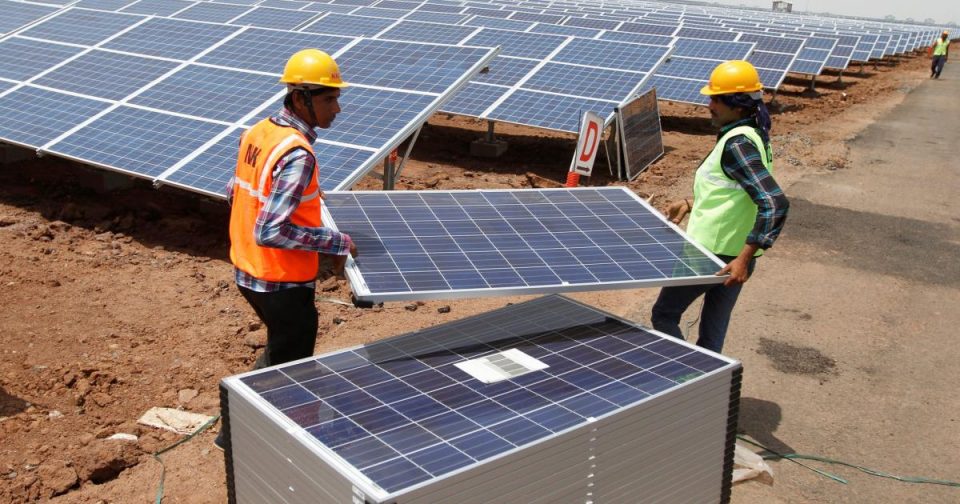BY SEYIFUNMI LUMEKO
Energy Capital & Power International Conference Director, João Gaspar Marques, spoke to H.E Diamantino Pedro Azevedo, Minister of Mineral Resources, Petroleum and Gas of Angola, about the impact of COVID-19 on the country’s oil and gas sector.
What have been key developments in the Angolan oil and gas sector in the past twelve months, giving particular weight to the state of emergency imposed by COVID-19?
Since the beginning of the pandemic, the mineral resources, oil and gas sector has materialized and expanded its reforms with the consolidation of the role of the National Oil and Gas Agency, ANPG, as National Concessionaire and the execution of the Restructuring/Regeneration Program of Sonangol-EP.
Within the specific scope of the Petroleum Concession Allocation Strategy for the 2019-2025 period, the implementation of the bidding program continued, with the bid for nine onshore blocks in 2021 for the 2020 bid – six from the Lower Kwanza Basin and three from the Lower Congo Basin. The block bidding strategy for 2021 was also recently approved.
During this period, continuity was given to the project to modernize and expand the Luanda refinery, which aims to increase gasoline production. We launched the construction of the Cabinda Refinery, the public tender for the construction of the Soyo Refinery was launched, and the international public tender for the partnership to execute the construction of the Lobito Refinery was also launched.
The development of marginal fields is beginning, and in this sense, some marginal fields have already been declared and approved, namely the PAJ (Palas Astrea and Juno) of Block 31, N’singa (already in production), Lifua, Kambala and N ‘dola Sul, in Block 0.
We, therefore, consider that the state of emergency imposed by Covid-19 had a significant impact on operational activities, leading to the suspension of drilling activities and substantial limitations on production activity in general.
What initiatives has the Ministry taken to mitigate the impact of the COVID-19 pandemic within the energy sector, and how does it assess the effectiveness of these initiatives so far?
The various initiatives taken in consultation with the national health authorities, the association of oil-producing companies in Angola and the association of companies providing services to the oil industry to mitigate the effects of the Covid-19 pandemic include:
» Demobilization of non-essential personnel
» Adoption of remote work mode for some functions
»Establishment of quarantine regimes, social isolation and systematic and mandatory testing of all personnel, that is, before accessing oil facilities either offshore or onshore.
With the continuous advancement of construction projects and renovation of several refineries, how can the development of the downstream sector reduce dependence on volatile fuel imports and offset losses in crude oil exports?
Angola currently imports around 80% of refined products to satisfy its internal needs, therefore, spending vast amounts of foreign exchange.
The refining strategy drawn up by the Angolan Executive includes the improvement of operational processes and the consequent increase in gasoline production at the Luanda refinery (revamping) and the construction of three new refineries in Cabinda (60,000 barrels per day), Soyo (100,000 barrels per day) and Lobito (200,000 barrels per day).
The projects listed above aim to achieve internal self-sufficiency in terms of refined products, export of surplus to neighboring countries, and maintenance and generation of jobs.
Given the current volatility in oil prices, how can COVID-19 facilitate the energy transition to alternative and clean energy sources, including natural gas?
It is important to start by clarifying that the Ministry of Energy and Water oversees issues related to energy transition; however, our Ministerial Department has contributed with essential subsidies related essentially to hydrogen, and some companies in the oil sector are involved in the design of renewable energy projects.
The Angolan State has policies and programs aimed at the energy transition, among which the conversion of thermal power generation plants from diesel to gas is the current priority. For example, we can mention the Soyo Combined Cycle Power Plant and the Malembo Thermal Power Plant in Cabinda. We also launched an initiative to build a photovoltaic power plant (50 MW) in Namibe, a partnership between Sonangol-EP and Eni.
Additionally, we highlight that Angola has an LNG plant in Soyo, which has been in operation since 2012 and originated from the need to monetize natural gas resources, eliminating its flaring in oil operations.
Can COVID-19 serve as an opportunity to expand local content development?
The prospects for the hydrocarbon sector in the post-pandemic period (short and medium-term) are focused on mitigating the decline in oil production, minimizing unexpected losses, optimizing and boosting the production of refined products to ensure the country’s self-sufficiency in these products and increase storage capacity of fuels and lubricants, guaranteeing their distribution coverage throughout the country.
The Legal Regime for the Local Content of the Petroleum Sector was recently approved, which aims to regulate matters relating to the transfer of technology and knowledge, the recruitment and training of Angolan human capital, and the acquisition of goods and services produced locally by companies operating in the oil sector, as tools for fostering Angolan business and promoting economic development.
What is the Ministry’s short, medium, and long-term prospects for the Angolan hydrocarbon sector in the post-pandemic period?
Mitigating the natural decline in production represents one of the biggest challenges for the sector and is therefore a top priority.
Thus, the Angolan Council of Ministers recently approved the Hydrocarbon Exploration Strategy, which is based on four pillars, namely: a) availability and accessibility to the areas that constitute Angola’s sedimentary basins for research and assessment activities; b) expansion of geological knowledge and access to oil and natural gas resources; c) ensuring the successful execution of the General Strategy for the Allocation of Petroleum Concessions in Angola; d) the intensification of research and evaluation in the concessions and Free Areas of Angola’s sedimentary basins.


